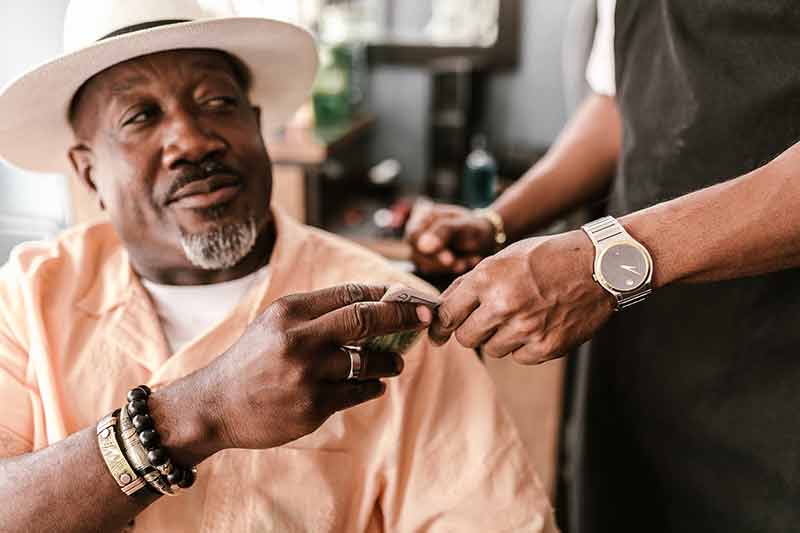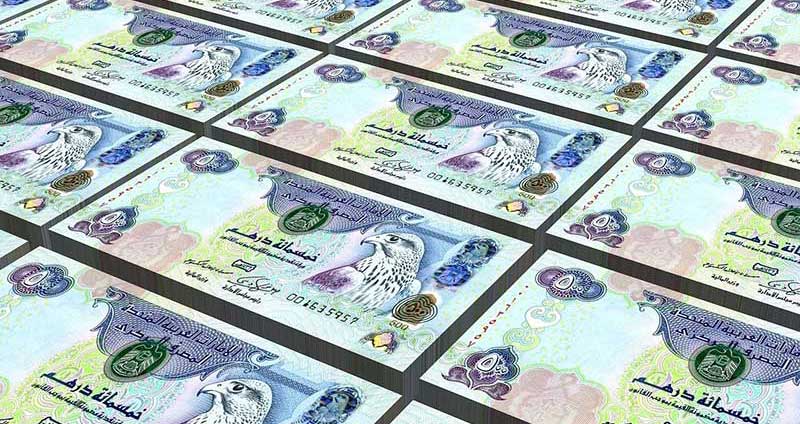One of the things that most people find hard to deal with when visiting a new country is the currency. Right from the exchange rates with your country’s currency to the types of notes and coins, everything looks and feels different. Like every new place, the situation is similar in Dubai as well. Dubai, an Emirate city of the United Arab Emirates, welcomes millions of visitors from around the world, every year. It is an amazing city with lot of interesting places to see and exciting things to do. If you are planning to visit Dubai or any of the other six Emirates, it is important to know all about the currency of Dubai or UAE.
Currency of Dubai
The currency of Dubai or UAE is the United Arab Emirates Dirham or AED, for short. It is also called the Emirati Dirham and shortened as DH or Dhs (unofficially). The denominator of the dirham is fils and 100 fils is equal to 1 dirham. When it comes to exchange rates, the easiest is the US dollar as the dirham is pegged to the dollar. The exchange rate from AED to US dollar is 3.67% which never fluctuates. So, it can be said that 1 USD is equal to AED 3.67. However, the exchange rates of AED with other countries keep on changing. Hence, make sure to check before exchanging your national currency with the Emirati dirham.
Notes and Coins
Both notes and coins are available for AED currency. Emirati dirham are available in the denominations of 5, 10, 20, 50, 100, 200, 500 and 1000 notes. One side of the note has text in Arabic, while the other side has text in English. Each note has attractive images that depict the life and culture of the Arabs or Emiratis. Apart from this, each note has a different colour, making it easy to identify them. Here are the colours of the Emirati notes:
- AED 5: brown
- AED 10: green
- AED 20: blue
- AED 50: purple
- AED 100: pink
- AED 200: brown
- AED 500: navy blue
- AED 1000: brown
When it comes to coins, only three exist today, and they are of 25 fils, 50 fils and 1 dirham. All the three coins are silver, and while the coins of 1 dirham and 25 fils are round in shape, the coins of 50 fils are hexagonal. Out of all the three, the 1 dirham coin is the most used and the most useful too.
History of the Dirham
The United Arab Emirates was formed in December 1971, and the Arab Emirates Dirham was introduced in May 1973. Before this, all the Emirate cities used the Gulf rupee as currency. But this changed to Qatar and Dubai Riyal for most Emirates, except Abu Dhabi, which used the Bahraini dinar. Once the Emirati dirham was introduced, all other currencies were considered null and void in the UAE.
How to Exchange Currency in UAE?
As a tourist or visitor in Dubai or UAE, the first thing you would want to know is how to exchange your currency for dirham. As Dubai is a major tourist destination, there are several options when it comes to currency exchange. Let us check all of them.
Airports:
As a major transit hub, the Dubai airport is one of the busiest airports in the world with flights from different corners. Hence, the airport offers exchange facilities for a variety of currencies. Still, it would be best to exchange a small amount of currency from the airport, only the cost that would cover your immediate expenses like taxis and other tips. The reason for this is that the exchange rates at airports can be a bit high.
Banks:
There are several foreign banks in Dubai, and if your nation’s bank has a branch here, you can get your money exchanged at one of the banks. Some of the foreign banks present in Dubai are Commerzbank, Citi Bank, Blom Bank France, Credit Suisse, Barclays Bank, UBS, etc. Most banks in Dubai are open from Saturday to Thursday from 8 AM to 1 PM.
Currency Exchange Counters:
The best method of exchanging your currency is opting for the currency exchange counters and you would find plenty in Dubai. Available in metro stations, shopping malls, supermarkets and even in the streets (check for air-conditioned cubicles), these counters offer the best rates when it comes to currency exchange in Dubai. Some of the best currency exchange places in Dubai are Al Ansari Exchange, Al Rostamani International Exchange, Western Union, Al Fardan Exchange, UAE Exchange, etc. These exchange companies offer competitive rates, hence they are preferred more than the ones in airports and banks. Another advantage is that these counters stay open till late in the evening, while banks close by afternoon.
Credit Cards and ATMs
It is possible to withdraw cash from ATMs if you wish so. You would find several ATMs at different places in Dubai, through which you can withdraw cash for your usage in Dubai. If your local bank has an ATM in Dubai, you can withdraw money without paying any extra fee.
Although you would have to carry some cash for taxi fares, shopping at souks and giving tips, it would be better to have an international credit card for larger transactions like shopping at malls and eating at restaurants. Check with your bank to know whether your credit card can be used internationally.
Tipping in Dubai
Tipping is not a norm in Dubai, although you can offer one if you are happy with the services provided to you. Here are some of the rules of tipping in Dubai:
- Most restaurants in Dubai add a service charge to the bill, making tipping unnecessary. Still, if you want to do it anyway, the tip should be 10%-15% of the bill.
- In case of taxis, you can either round off the total or not ask for change.
- If you are tipping hotel staff for running some errand for you or carrying your heavy luggage, you can offer a top of 5 to 10 dirham.
- At a spa, you can give a 10% tip (of the total bill) for longer treatments and 5 to 10 dirhams for shorter treatments.

As you now know everything you need to understand about the currency in Dubai, spending money in the city would not be confusing or difficult. Make sure you know about the exchange rates of the current day before you make the transition. Moreover, although cases of fraud are rare in Dubai, do not make currency exchange with people you meet on the road. A legal currency exchange always involves proper bills and records.



